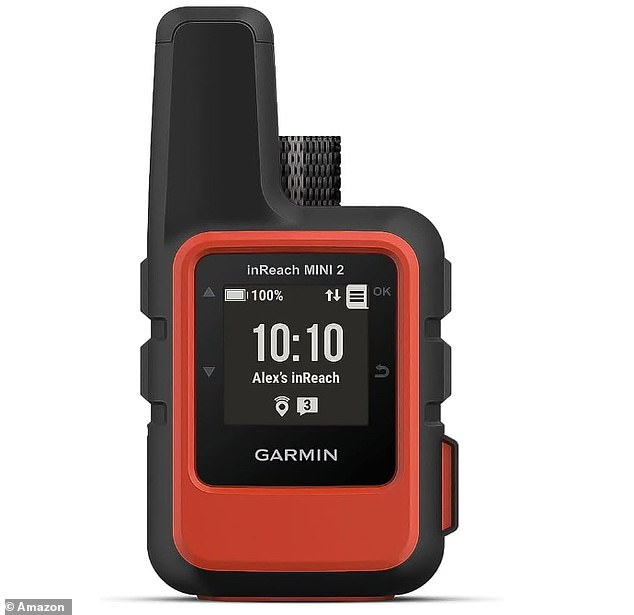A British woman has issued an emotional warning to travelers after being arrested and detained at a Delhi airport for carrying a common GPS device, which is strangely banned in India.
Heather, a qualified mountain leader based in West Yorkshire, was heading to the northern city of Rishikesh when security at Indira Gandhi International Airport handed her over to police for carrying a Garmin inReach device.
The experienced hiker shared her story on Instagram, warning other travelers who may be planning a trip to India not to bring equipment such as a GPS or satellite communicator into the country.
“Do not try to travel to India with a Garmin inReach or any other satellite communicator,” he said in his post, adding: “They are illegal here.”
In the clip, Heather said she even contacted the embassy but was told there was little they could do as she was now in the hands of the law in India.
Heather also claimed that during her arrest, police denied her access to water.
In a detailed caption, Heather wrote: “Around 10.30am, I was going through security at Delhi airport intending to catch an internal flight to Rishikesh.
“I innocently placed my Garmin inReach on the tray to go through the scanner, and at that point security pulled me aside and told me to wait.”
Heather took to Instagram to issue a warning to travelers after she was arrested and detained for carrying a GPS device in India.

The experienced hiker stated that during her arrest the police denied her access to water.
According to the Indian Wireless Telegraphy Act, 1933, possession of wireless telegraphy equipment without proper license is prohibited.
The ban covers satellite technology, included in the Garmin inReach Mini device, described on the company’s site as an “access connection for maintaining contact outside the network.”
Heather claimed that after being kept waiting for a long time, she was told that the Garmin was illegal in India “and that they were going to hand me over to the police.”
«Finally they took me to the police station, where they questioned me, in a rather friendly manner, and forced me to sign document after document.
“I did not take the ‘no comment’ stance, foolishly or not, it is my nature to be honest and after all, there was absolutely no intention on my part,” she added.
After spending several hours in police custody, Heather said she was released around 9 p.m., but was told she would have to return for a court appearance.
And he added: ‘I am not the only person who has been a victim of this law. Therefore, I felt compelled to write this post.’
Heather also referenced a recent case involving a Canadian runner arrested in India in December for carrying a similar device.
Although she said the arrest overwhelmed her, she hoped sharing her story would help others avoid a similar fate.

Heather was heading to the northern city of Rishikesh when security at Indira Gandhi International Airport handed her over to police for carrying a Garmin inReach device (pictured).
“I don’t know what the outcome will be,” he said, adding, “I guess I’ll have to wait.”
It comes after a Canadian trail runner enjoying a months-long trip to India found herself in trouble with Goa airport authorities after they detected an illegal item in her bag – a mini GPS device, banned under the Indian law for legislation that is almost a century old. .
Tina Lewis, who now lives in Colorado, had already passed through many other Indian airports without problems when she caught the attention of security in Goa.
“I brought my Garmin inReach device as I do on many of my international trips for camping, potential mountain adventures, and to use when there is no cell reception for safety as a solo female traveler,” Lewis wrote on Instagram two weeks ago.
‘To consult with family/friends. I was detained at the airport security (CISF) in Goa and escorted to the Goa police post for investigation. I didn’t know a GPS device was illegal. It is a law from 1933 (!!!).
The online device description is followed by a prominent message: ‘NOTICE: Some jurisdictions regulate or prohibit the use of satellite communications devices.
It is the user’s responsibility to know and follow all applicable laws in the jurisdictions where the device is intended to be used.’
Lewis wrote that after “hours of investigation, a friend’s lawyer connection released her at midnight.”
After “days of hearings,” his case was “finally cleared.”


